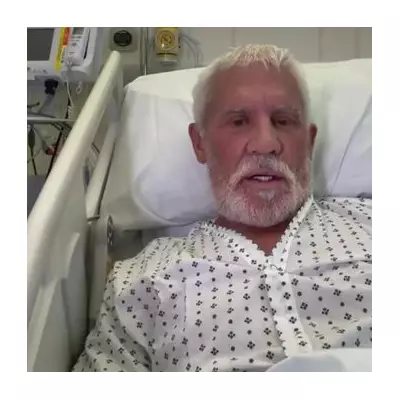
As temperatures rise and families flock to beaches, pools, and lakes across the UK, emergency medical professionals are urging parents to adopt a potentially life-saving water safety strategy for children.
The Critical Rule Every Family Should Implement
Paramedics with extensive experience in water-related emergencies have highlighted a remarkably simple yet effective system that could mean the difference between a fun day out and tragedy. The approach focuses on constant, designated supervision rather than assuming someone is watching the children.
Why Traditional Supervision Methods Fail
"When multiple adults are present, there's often a dangerous assumption that someone else is monitoring the children in water," explains one seasoned paramedic. "This diffusion of responsibility has led to countless near-misses and actual drowning incidents we've attended."
Drowning remains one of the leading causes of accidental death in children across the United Kingdom, with summer months seeing a significant spike in incidents. What makes these tragedies particularly heartbreaking is that they often occur during family gatherings where numerous adults are present.
The Paramedic-Approved Solution
The recommended system involves:
- Designated Water Watchers: Assign specific adults to supervise for defined periods
- Clear Handover Protocol: Formal transitions between watchers to eliminate gaps in supervision
- Undivided Attention: Water watchers must avoid phones, books, and other distractions
- Proximity Matters: Staying within arm's reach of non-swimmers and young children
Why This Approach Saves Lives
Unlike casual supervision, this method creates accountability and eliminates the "I thought you were watching them" scenario that paramedics frequently encounter after drowning incidents. The structured approach ensures that at least one person has their eyes on the water at all times.
"Children can drown silently in as little as 20-60 seconds," another emergency medical professional emphasizes. "That's faster than most people realize. By the time someone notices something's wrong, it may be too late."
Additional Summer Water Safety Essentials
While the supervision system forms the foundation of water safety, paramedics also recommend:
- Formal swimming lessons from an early age
- Appropriate flotation devices for weaker swimmers
- Understanding the different risks between pools, open water, and beaches
- Learning basic CPR and emergency response techniques
- Establishing clear water safety rules children can understand
As British families prepare for summer holidays, implementing this straightforward supervision strategy could prevent the unthinkable. The consensus among emergency responders is clear: when it comes to water safety, there's no such thing as being too cautious.





